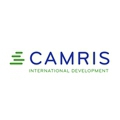
Economist/Political Economy Analyst
CAMRIS International

CAMRIS International

CAMRIS clients include U.S. government agencies and multilateral and private organizations. Our core practice areas include public health, agriculture, and food security, economic development, education, environment, humanitarian assistance, democracy and governance, monitoring, evaluation and learning, and medical research.
Views: 1467 | This job is expired 6 years ago
No of Positions: 1
Type: Contract (STTA Consultant)
In support of the CAMRIS-implemented, USAID/Nepal Monitoring, Evaluation, and Learning (MEL) Activity, we seek an Economist/Political Economy Analyst for the upcoming Democracy, Human Rights, and Governance (DRG) Assessment – Nepal 2019. Findings and recommendations of the assessment will inform stage 1 of the upcoming USAID/Nepal public financial management risk assessment framework and the development of USAID/Nepal’s new country development cooperation strategy.
The DRG assessment 2019 will include four interlinked areas as follows:
Responsibilities:
Qualifications:
This job has expired.









